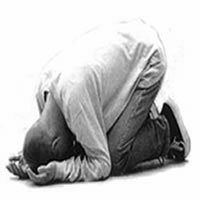One of the biggest obstacles regarding national security and violence in the Brazilian territory is the difficulty of controlling the arms trafficking. Arms trafficking is understood as the illegal or uncontrolled commercialization of weapons of war. Data collected by the Ministry of Justice (MJ) in the early 2010s revealed that more than half of the firearms circulating in the country are illegal and come from trafficking. Thus, it is impossible to think about security assurance if there is no effective policy to combat this problem.
O arms trafficking in Brazil is often directly associated with the organized crime and to drug trafficking, since the illegality of the commercialization of illicit substances demands a high militarization of the trafficking groups. In this context, specialists in violence and arms trafficking policy argue that this issue will only be resolved with greater control and efficiency in relation to commercialization. in illicit drugs, mainly targeting the great drug traffickers.
Meanwhile, there is a myth that most of the country's illegal weapons come from the market international, so that the best way to alleviate the problem would be total control of the areas of border. However, this information is wrong, as most of the illegal firearms circulating in the Brazil is manufactured in the country itself, although many of them pass through Paraguay before returning to the territory Brazilian. Protecting borders is, of course, very important, but not the complete solution to arms trafficking in Brazil.
According to data released in 2010 by the Ministry of Justice - collected by the organization Viva Rio -, O number of illegal weapons in Brazil reaches 7.6 million and, if such data were updated, the number would certainly be much higher. Of this total, 80% are manufactured nationally, many of them even of legal origin, but which end up entering the clandestine market after robberies, police corruption and other causes.
From the total of illegal weapons of foreign origin, more than half come from the United States, 16.7% are from Argentina, 6.9% from Spain and 6.4% from Germany, countries that act, therefore, as the main exporters. Another fact that deserves to be highlighted is that, among the nationally manufactured weapons seized from organized crime, 30% are legally registered, however, they ended up illegally.
How to combat arms trafficking in Brazil?
Combating arms trafficking in Brazil is a truly complex issue and difficult to solve immediately. Furthermore, the paths to be taken are not a consensus among experts on the subject, which makes it even more difficult to choose the strategy to be adopted.
The most necessary measure, currently, to act on this objective is also the fight against drug trafficking. In this sense, there are those who point out, as a viable action, greater State action, especially in the interception of goods and raw materials and also in the restraint of the great leaders, instead of only detaining the small traders involved. On the other hand, there are also those who suggest that the best way is the legalization – or, better saying, the regulation – of drugs, especially those of lesser weight, such as marijuana. This topic, obviously, is quite controversial, controversial and difficult to reach.
Another way to combat trafficking is a greater articulation of armed public institutions in order to control their weapons, seeking to prevent them from being destined for the clandestine market. For this to occur, it is essential to curb police corruption, which acts both with the direct supply of weapons and with the permissiveness of trafficking in exchange for bribes.
As for foreign weapons, it is also necessary to intensify – in partnership with other countries – the fight against international trafficking, demanding more intensive measures in the control of the arms market by the UN and other institutions, such as Interpol and the States Nationals. Border regulation, although it is a very difficult action due to the vastness of the national territory, also needs to be intensified.
As has already been highlighted, combating arms trafficking is impossible in the short term. However, emergency measures need to be taken to at least reduce the violence caused by arms, given that Brazil is the world champion of deaths by illicit nannies, with more than 34 thousand homicides yearly. the problem of violence, it is worth remembering, goes far beyond arms trafficking, as it is a very complex social issue, even linked to education and society's quality of life.
By Me. Rodolfo Alves Pena
Source: Brazil School - https://brasilescola.uol.com.br/brasil2/trafico-de-armas.htm


